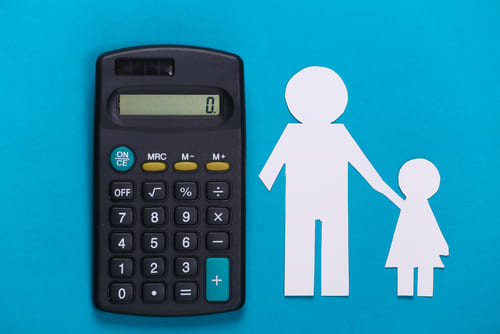Recent Blog Posts
Three Ways Your Spouse May Hide Money in Your Illinois Divorce
 When navigating an Illinois divorce, splitting assets in an equitable manner is crucial to the dissolution of the marriage process. But what if your spouse is not as forthcoming about his or her finances as you are? There are three common methods your spouse may use in an attempt to hide assets in your divorce. Understanding these tactics can ensure that, if your spouse does attempt to hide assets, you can be ready to identify his or her deceitful actions and make sure they do not influence your final divorce decree and damage your financial future.
When navigating an Illinois divorce, splitting assets in an equitable manner is crucial to the dissolution of the marriage process. But what if your spouse is not as forthcoming about his or her finances as you are? There are three common methods your spouse may use in an attempt to hide assets in your divorce. Understanding these tactics can ensure that, if your spouse does attempt to hide assets, you can be ready to identify his or her deceitful actions and make sure they do not influence your final divorce decree and damage your financial future.
The knowledgeable attorneys at Goostree Law Group are ready to defend your rights throughout your divorce and ensure your spouse does not get away with any deceitful actions during the divorce process, such as concealing assets. With more than 80 years of combined experience, clients can trust that we know the law and are ready to fight for them.
Can I Establish Paternity Without the Father’s Consent?
 When a woman gives birth in Illinois, her husband is automatically considered the legal father. This is also the case if:
When a woman gives birth in Illinois, her husband is automatically considered the legal father. This is also the case if:
-
The parents divorced less than 300 days before or after the birth.
-
The parents entered into any other kind of legal relationship, such as a civil union, within 300 days of the birth.
If the parents do not enter a legal relationship, however, then the law does not assume that anyone is the father. In this case, the father must declare his fatherhood and, in some cases, prove it. This is called establishing paternity.
However, if the father does not want to establish paternity, the mother can take certain steps to force paternity to be established.
This article will discuss why establishing paternity is important and how it can be done without the father’s consent. If you want to establish paternity, consult with a qualified Illinois paternity lawyer who can help you through the process.
What Type of Custody Schedule Is Best for My Child?
 Parents who get divorced in Illinois are required by law to submit a parenting plan to the court. A parenting plan is a legal document that outlines the parameters of child custody, such as:
Parents who get divorced in Illinois are required by law to submit a parenting plan to the court. A parenting plan is a legal document that outlines the parameters of child custody, such as:
-
Whether the parents share joint custody or if one of the parents has sole custody
-
How the parents split parenting time, otherwise known as physical custody
-
How decision-making responsibilities are divided between the parents
-
Transportation arrangements for shuttling the child between the parents
-
Parenting schedules
Hopefully, the parents will be able to communicate with each other and place the best interests of their child first. In that case, they will probably submit a joint parenting plan to the court. Otherwise, each parent must submit his or her own. Either way, a parenting plan should be created with the help of an experienced Illinois attorney.
3 Ways an Affair Can Affect Your Divorce
 Not all divorces are equal. Some divorces come suddenly and shockingly, while others are expected and a long time in coming. In the latter case, the spouses may have separated for months before the divorce. One of the spouses could have moved out, and one or both spouses may have found new romantic partners.
Not all divorces are equal. Some divorces come suddenly and shockingly, while others are expected and a long time in coming. In the latter case, the spouses may have separated for months before the divorce. One of the spouses could have moved out, and one or both spouses may have found new romantic partners.
While there is no law against having an affair, it can affect your divorce and you should check with a qualified Illinois attorney before starting a serious relationship before your marriage ends. This article will discuss three ways an affair can affect your divorce.
Your Affair Can Affect Alimony
In many divorces, one of the spouses — called the "payor" — is required to pay alimony to the other spouse, called the "payee."
Under Illinois law, the payee can receive spousal support only as long as he or she is not in a "supportive relationship." A supportive relationship is a relationship in which the partners are expected to financially support each other. This means:
How Can I Get Lifetime Alimony in an Illinois Divorce?
 When a couple gets divorced, one party is often required to financially support the other. This is referred to as spousal support, spousal maintenance, or alimony. Illinois law gives courts wide discretion in deciding whether alimony must be paid, how much payments should be, and how long they should last.
When a couple gets divorced, one party is often required to financially support the other. This is referred to as spousal support, spousal maintenance, or alimony. Illinois law gives courts wide discretion in deciding whether alimony must be paid, how much payments should be, and how long they should last.
That being said, many factors go into consideration when a court makes decisions about spousal support. This article will discuss some of those factors and when a spouse may receive alimony for life.
Keep in mind there is no actual formula that will tell you if you are entitled to lifetime alimony. The best way to determine this is to consult with an attorney who is familiar with the family courts in Illinois and can give you a professional assessment.
How Does a Court Decide Whether to Order Alimony?
When making decisions about alimony, a court will look at several factors, including:
How Do I Know If My Ex is Alienating My Child From Me?
 Parental alienation, which is when one parent tries to interfere with the relationship between a child and her other parent, sometimes happens in hostile marriages or divorces. Parental alienation affects the child deeply and can even be viewed as a form of child abuse in Illinois. In 2013 the Illinois legislature designated the month of April as Parental Alienation Awareness Month.
Parental alienation, which is when one parent tries to interfere with the relationship between a child and her other parent, sometimes happens in hostile marriages or divorces. Parental alienation affects the child deeply and can even be viewed as a form of child abuse in Illinois. In 2013 the Illinois legislature designated the month of April as Parental Alienation Awareness Month.
Because parental alienation is a serious concern, it is also a serious accusation and has legal consequences. Make sure you know the signs of parental alienation and what actions you can take if your child is being estranged from you.
If you suspect that your co-parent is alienating your child from you, contact a qualified family lawyer in Illinois who is experienced in parental alienation matters.
Do I Have First Right of Refusal to See My Child in Illinois?
 While parents and courts try to make parenting time arrangements as stable and consistent as possible, sometimes plans change. The child is then forced to adapt, which can increase confusion for a child already suffering from it.
While parents and courts try to make parenting time arrangements as stable and consistent as possible, sometimes plans change. The child is then forced to adapt, which can increase confusion for a child already suffering from it.
For this reason, some parents choose to put a “first right of refusal” clause in their parenting plan. This article will discuss what a parenting plan is and why you might consider requesting the first right of refusal.
As always, it is best to consult with an experienced family lawyer if you have any questions about parenting time.
What is a Parenting Plan?
One of the things parents who are getting divorced must do is create a parenting plan. A parenting plan, according to Illinois law, is a legal document that establishes how parenting rights and responsibilities will be distributed between the two co-parents. It includes, for example:
How Can a Prenuptial Agreement Affect a Divorce in Illinois?
 Couples who decide to get married are often encouraged to sign a prenuptial agreement. This agreement outlines what will happen to property belonging to each party and the couple as a whole in the event of death or divorce. It becomes effective upon marriage.
Couples who decide to get married are often encouraged to sign a prenuptial agreement. This agreement outlines what will happen to property belonging to each party and the couple as a whole in the event of death or divorce. It becomes effective upon marriage.
Although signing a prenuptial agreement can be helpful in many scenarios, it is legally complex and should be drafted by an attorney who is experienced in family law.
If the couple decides to divorce, a prenuptial agreement often becomes a major factor in the divorce proceedings. This article will discuss the benefits of signing a prenuptial agreement, what the agreement includes, and how it can impact a divorce.
Why Sign a Prenuptial Agreement?
There are several reasons why you might want to sign a prenuptial agreement:
-
To shield your spouse from being saddled with your debt
Will I Lose My Business in an Illinois Divorce?
 One of the painful realities of the divorce process is that you lose not just a spouse but can also lose financial assets. Asset division, which is the area of divorce law that deals with dividing a couple’s assets, is very complex and should be handled by a skilled divorce attorney.
One of the painful realities of the divorce process is that you lose not just a spouse but can also lose financial assets. Asset division, which is the area of divorce law that deals with dividing a couple’s assets, is very complex and should be handled by a skilled divorce attorney.
The general rule under Illinois law is that any property or asset that was acquired by either spouse during the marriage should be equitably split with the other spouse upon divorce. There are exceptions to this, such as:
-
Inheritance
-
Gifts
-
Property acquired by using pre-marital assets as collateral
If you have a business, it may count as marital property depending on certain factors.
Is My Spouse Entitled to My Business?
There are a few cases in which your spouse may be entitled to part of your business. For example:
Can I Date Other People Before My Divorce Is Final?
 Under Illinois law, divorces are not anyone’s “fault.” The only legal basis for divorce is “irreconcilable differences.” Sometimes those differences are so great that at least one spouse might be looking to move on even before the divorce is finalized.
Under Illinois law, divorces are not anyone’s “fault.” The only legal basis for divorce is “irreconcilable differences.” Sometimes those differences are so great that at least one spouse might be looking to move on even before the divorce is finalized.
It is not illegal to enter a new romantic relationship before your divorce is final, and it will not make the divorce your “fault.” It can, however, complicate the divorce process for you and those around you. It is advisable to consult with an experienced divorce attorney before committing to a new relationship while your marriage is still valid.
Here are a few complications that can arise if you start a new relationship before your divorce is official.
It Can Affect Cooperation From Your Spouse
Cooperation between two spouses during a divorce is essential to making the proceedings as smooth as possible. A court will look at interspousal cooperation and communication very closely in some cases, like in a child custody dispute.












